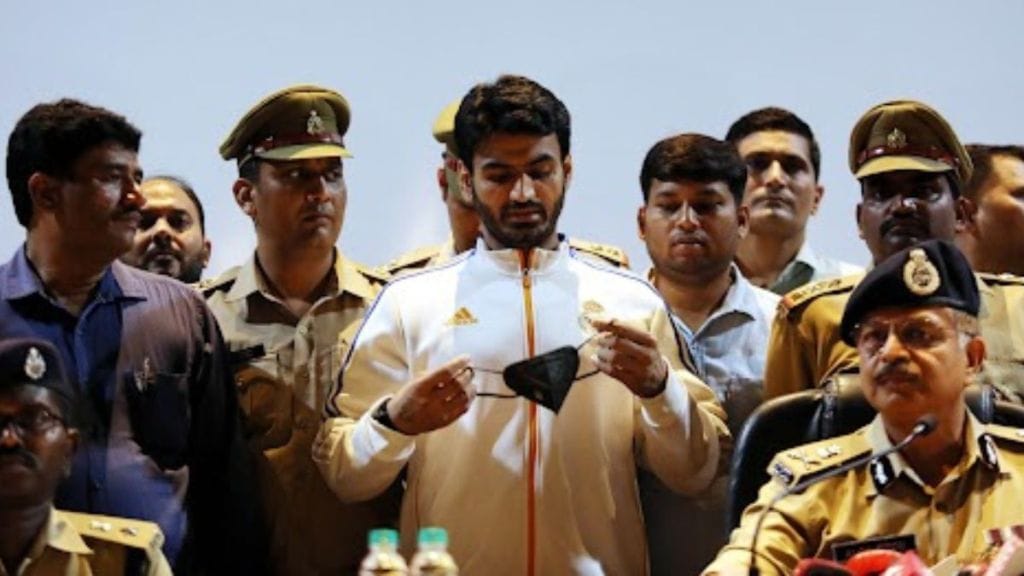The Supreme Court has dismissed a petition filed by Noida-based politician Shrikant Tyagi, who was arrested in August last year for allegedly assaulting a woman in a Noida society, seeking police protection.
A bench of Justices Bela M Trivedi and S C Sharma said it was not inclined to interfere with the Allahabad High Court judgement.
“We are not inclined to interfere with the judgment impugned herein under Article 136 of the Constitution of India. The petition for Special Leave to Appeal is dismissed,” the bench said, as quoted by PTI.
Tyagi was seen in video, which was widely circulated on social media, purportedly abusing and assaulting a woman resident of his society – Grand Omaxe society in Sector 93B, Noida. The woman had allegedly objected to the plantation of trees by Tyagi on the premises of the society.
He was arrested on August 9 by Noida Police in Meerut, days after the video went viral.
He was booked under Sections 354 (outraging modesty of woman and assault), 447 (criminal trespass), 323 (voluntarily causing hurt), 504 (intentional insult) and 506 (criminal intimidation) of the Indian Penal Code. The police later filed an FIR against him under the Gangster Act after a group of men, allegedly his supporters, barged into the housing society, seeking the woman complainant’s arrest.
Tyagi was also accused of using UP government stickers on his vehicles, allegedly in an attempt to “intimidate”, and a case of impersonation was also registered against him, reported The Indian Express.
On October 17, Tyagi was granted bail in connection with a Gangsters and Anti-Social Activities (Prevention) Act case. Observing that Tyagi was on bail in the substantive offence, Justice Surendra Singh granted bail to Tyagi.
The apex court was hearing an appeal filed by the politician challenging July 4 judgement of the high court which had declined his plea saying that “a person who has chosen violence and does not value human life, has no right to plead that the state should take special measures to protect his life from rivals”.
“In our opinion, providing personal security would bolster the activities of such person to the detriment of the society at large. A person, who has chosen violence and does not have any value of human life, has no right to plead that the State should take special measures to protect his life from his rivals.
“The threat perception, if any faced by such a person, is of his own making for which the State can not come forward to provide him security,” the high court had said.

